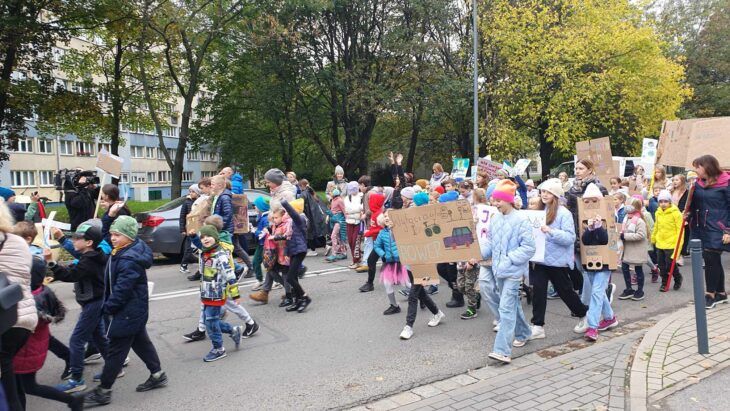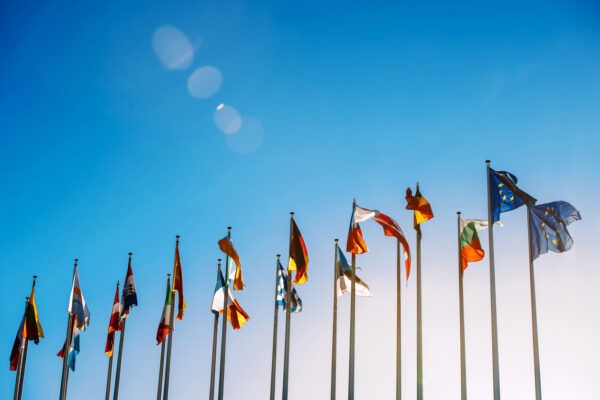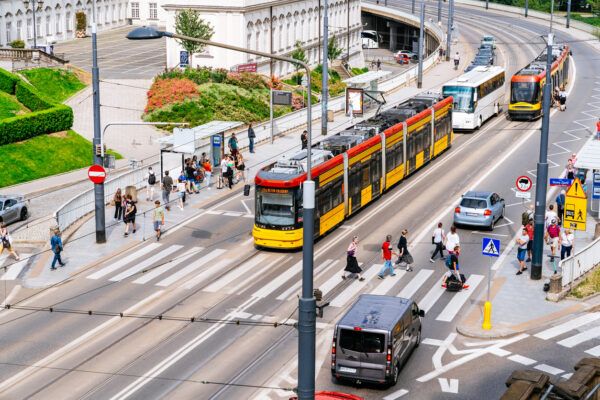The recent political shift in Poland in October 2023, following the parliamentary elections, could signify a turning point for climate policy. This change is opening the door to vital EU funds from the National Recovery Plan, earmarked for enhancing energy efficiency and promoting emission-free transport.
Responding to new appointments in Poland’s Ministry of Climate and Environment, a coalition of non-governmental organisations (NGOs) and think tanks advocating for cleaner air have recently presented five crucial strategies to tackle Poland’s air quality crisis head-on. The essence of these recommendations is to fund and speed up the implementation of thermos-modernisation of buildings to reduce emissions and switch to renewable energy programmes.
This coalition also advocated for ambitious air quality standards that align with the EU’s Ambient Air Quality Directive (AAQD), enforcing strict clean air regulations at all levels of government, allocating additional resources to reduce transport emissions, and encouraging dialogue among stakeholders to address air quality concerns.
The context for these proposals explains why Poland continues to grapple with poor air quality, despite its two-decade EU membership.
Coal’s legacy
Poland’s moniker as “Coal-land” is no coincidence. In the 1980s and 1990s, Europe phased out coal mines and upgraded coal-fired power plants for cleaner alternatives, but Poland clung to its coal reserves, viewing them as essential for energy independence. This stance, rooted in mining traditions, solidified coal’s status as the nation’s identity.
However, the consequences are dire: over 40,000 premature deaths are linked to coal combustion, as are respiratory ailments, cardiovascular diseases, and cancer. Despite the alarming toll on public health, successive governments prioritised preserving the fossil fuel-based system over environmental and climate concerns.
The market for used cars
Toxic pollution in Poland’s congested cities is caused mainly by vehicle exhaust fumes. Inexpensive yet highly polluting second-hand vehicles flooded Polish roads in the 1990s. Insufficient governmental investments in public transport led to closing bus and train connections between the cities, while investments in wider roads and subsidies for gasoline fuelled this trend. Urban planning failures and the absence of restrictions like Low Emission Zones, which began to take force in Western Europe, exacerbated the issue, making polluting second-hand vehicles the most viable option for 15 million people’s daily commutes, and exposing vulnerable populations to polluted air.
A wake up call
Public awareness of the health hazards of coal-based heating and unregulated vehicle emissions began in January 2017, marked by a smog-related peak mortality of 44,400 individuals. NGOs and regional authorities played a pivotal role in raising awareness and enacting local anti-smog measures, while national legislative efforts started addressing exhaust emissions regulations.
The government initiated the Clean Air Programme in 2018 to support thermal modernization (such as insulation) and heating source replacements in residential homes. But accessibility challenges persisted for economically disadvantaged individuals. Moreover, initial flaws in the programme allowed people to replace their old coal-fired furnaces with newer, but still coal-fired, alternatives, falling short of zero-emission targets.
Poland’s reliance on coal was starkly challenged following Russia’s war in Ukraine, revealing vulnerabilities in energy imports. Despite this wake-up call, government actions, including increased coal mining and subsidies for coal-fired furnaces, undermined clean air efforts. NGOs, think tanks, and social movements responded by ramping up their advocacy efforts, including Polish Smog Alert, ClientEarth, European Centre for Clean Air, Health and Environment Alliance, Parents For Future Poland, Polish Green Network, Parent in the City, Clean Cities Campaign, Green Economy Institute and Profeina.

5 actions for lasting change
A recent letter from the NGO coalition to the Ministry of Climate and Environment, presented five ways to clean Poland’s air:
- Provide better funding and expedite the implementation of the Clean Air Programme and other financial programmes.
- Elevate air quality standards in Poland by supporting an ambitious Ambient Air Quality Directive.
- Enforce strict regulations for clean air at central, regional, and local levels, including anti-smog regulations.
- Allocate additional financial resources to reduce emissions in transport, especially in cities with more than 100,000 residents, including those implementing Low Emission Zones.
- Promote comprehensive dialogue between the government, regional and local governments, social organisations, and private companies to address air quality issues.
A path forward
Along with political will and financial resources, a new narrative is needed on the benefits of clean air for public health.
Only 2 million people out of 38 million breathe clean air in Poland. According to a report prepared by the European Clean Air Centre, implementing and adhering to adopted legal obligations could “provide breathable air meeting quality standards” for up to 30 million people. That’s a goal worth pushing for.

